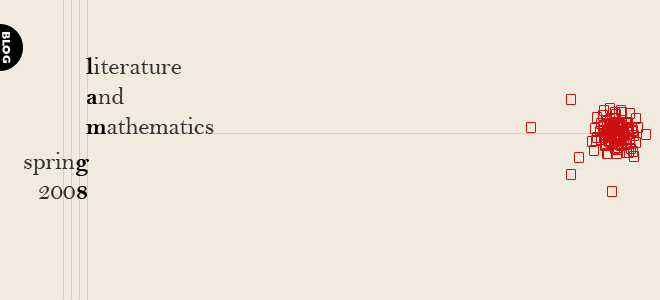I sort of shut up in class when we started talking about whether or not certain parts of Pi were supposed to be taken literally or not. I ran into the same brick wall when writing my explication of the opera sequence in Vas. When we start to pry reality from unreality in these types of stories, I feel that we risk missing the meaning in them. There is much to say about taking things at face value. In Pi, I would rather not try to figure out whether or not the various antagonists were a fiction of Max's delusions. I would rather see the narrative as a representation of Max's perception of his surroundings. Same with Vas. Now, as far as Beautiful Mind is concerned, that is a story of a real person who really had delusions and so it IS important to understand which parts of the narrative are depicting reality and which are depicting illusion. Max and Square are not necessarily historic figures and so the only important side of the story is theirs.
Wednesday, April 2, 2008
Subscribe to:
Post Comments (Atom)

2 comments:
excellent point. attempting to find out what is real and what is fake in Vas and Pi, or just even what mattered was maddening. i guess it doesn't really matter all that much as long as it is looked at your way. the world is just how the main character saw it and not an accurate depiction, but then couldn't this also be used with A Beautiful Mind. this movie is a dramatized depiction of John Nash's world, so isn't suppose to give a better understanding of his ideas and life by seeing it through his eyes??
I think it is important to consider the narrative of Pi to be the main character's perception. But it is also important to understand how his perception relates to reality, because that is part of the message of the narrative.
Post a Comment